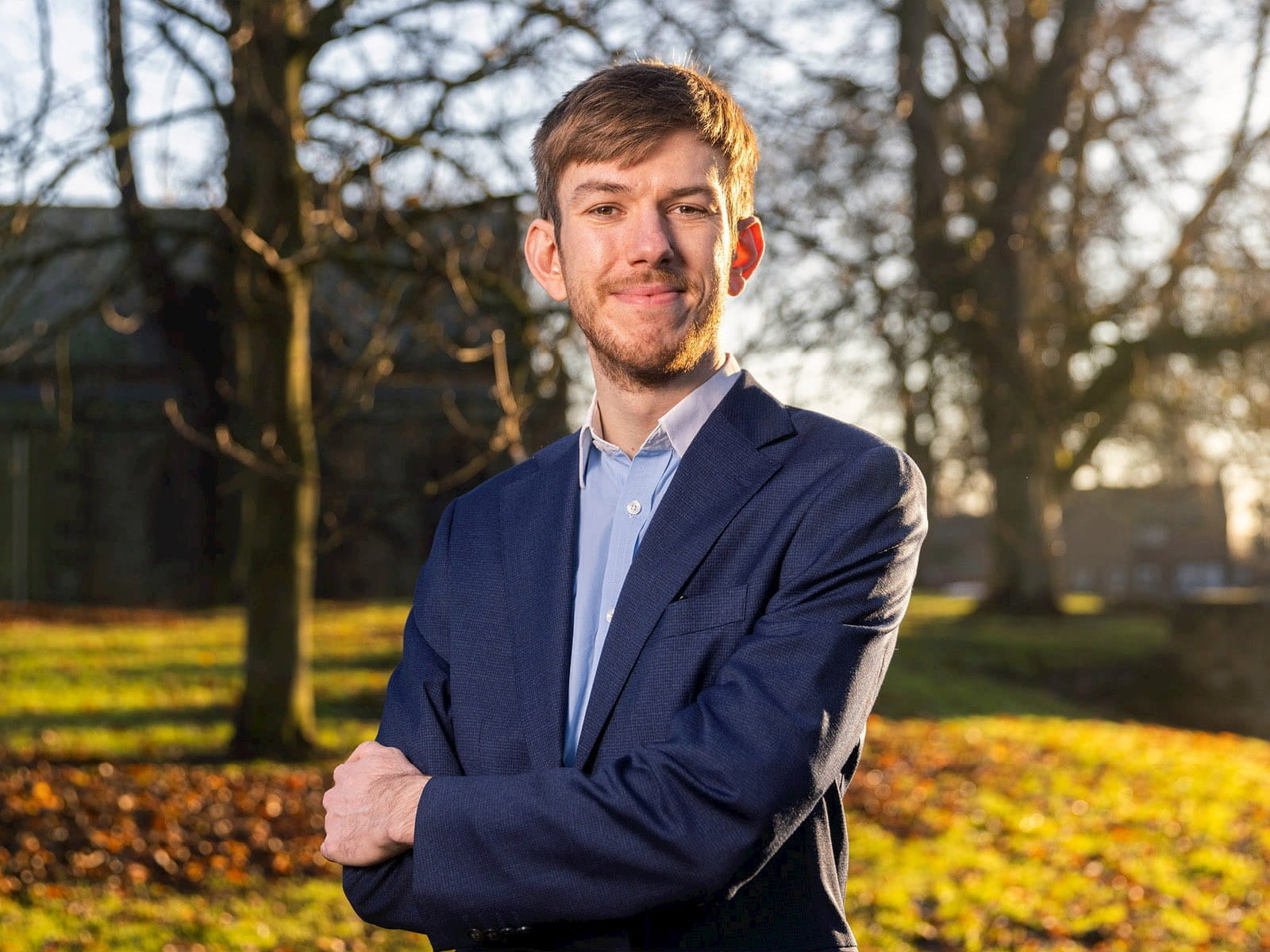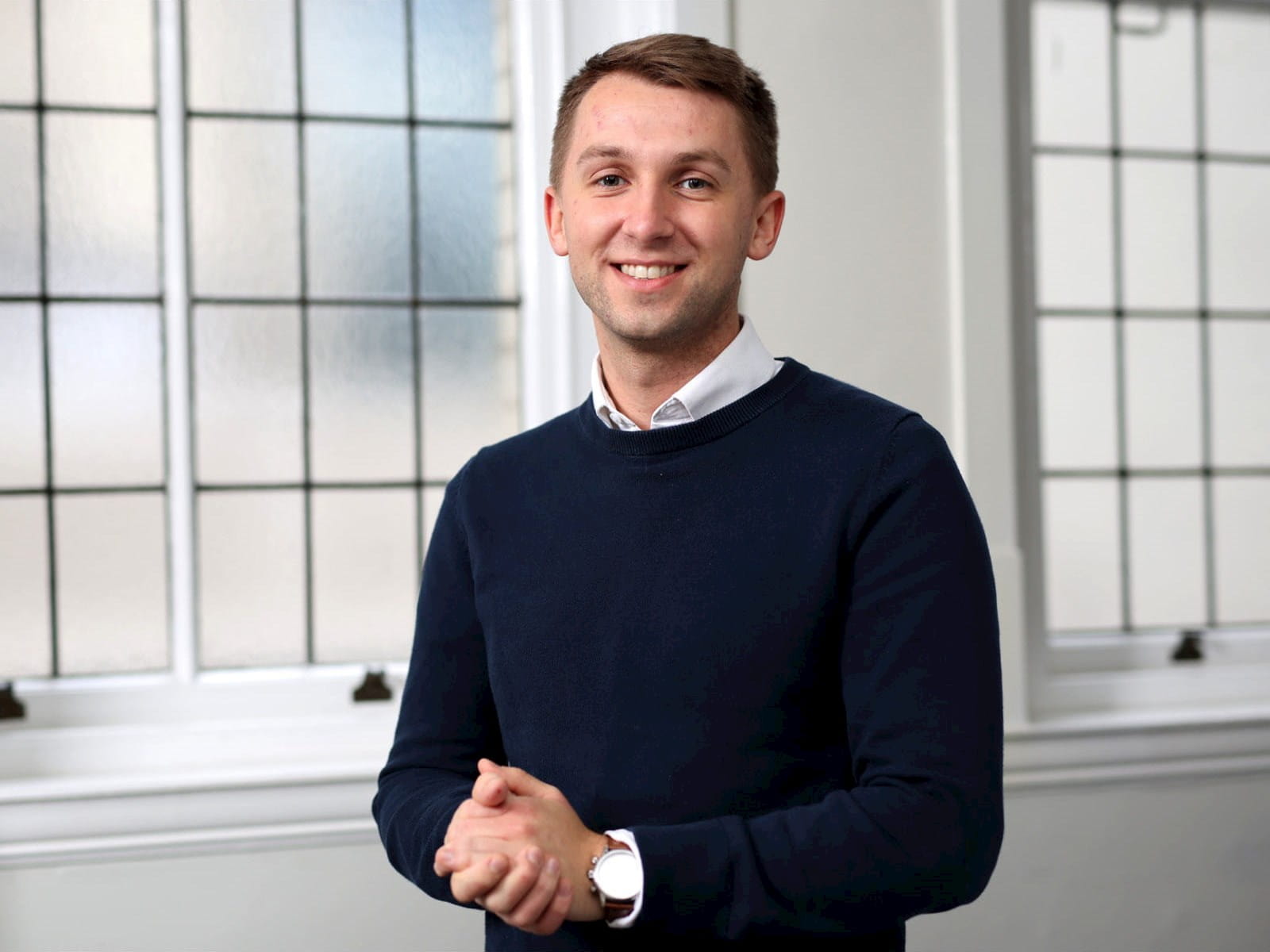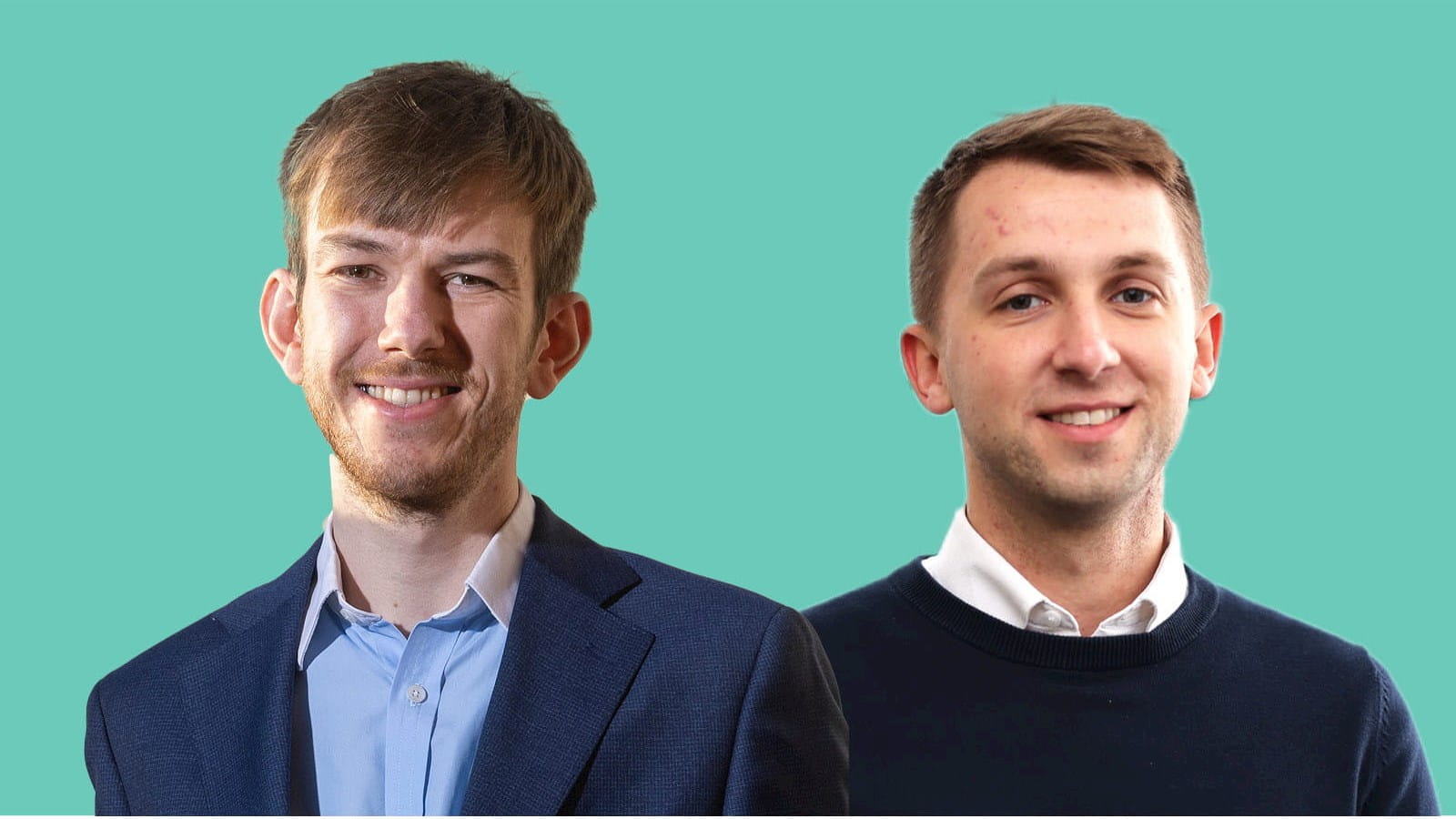Sam Hutson and Dominic Buttery are the ICAEW Student Council Chair and Vice Chair for 2022-2023. We spoke to them about their plans and priorities for the coming year.
Q Have you known each other long?
Sam: We met virtually around nine months ago when Dom was taking over as Chair of the Isle of Man Chartered Accountants Student Society. I was invited along – I think they were hoping for some sage wisdom, but I don’t know if they got any!
Dom: We got plenty! Sam was invited to the first committee meeting when I became Chair, and he introduced the ICAEW Student Council in his role as Vice Chair at the time. We’re hoping to meet in person for the first time this year. I’m hoping he isn’t quite as tall as he looks on camera.
Q Tell us a bit about your training and career so far.
Dom: I’m a third-year trainee at the International Financial Group Limited, studying for my Advanced Level exams. I was previously in a general practice local independent Manx firm, where I did everything from audit to accounts and trust or company service provider work. I’m now in wealth management, performing part of the risk function for the Insurance and Investments divisions at a large international group. Right now I’m preparing the annual ORSA [Own Risk and Solvency Assessment] report. I also sit on the board of a few local community organisations already, all of which I wouldn’t have achieved without my ICAEW training and credentials!
Sam: I work for my parents’ firm in Northallerton, a small town in North Yorkshire, and we’ve been going for nearly eight years now. It’s a small family business and we’re very ingrained in our local community. We’re a general practice, so we do a bit of everything – VAT, personal tax, capital gains tax, company tax, accounts filing, you name it – and we try to keep that family atmosphere throughout. In terms of my training, I like to say I’m ‘newly qualified’ – though it’s been a couple of years now!

Q When did you first get involved in a student society and the ICAEW Student Council?
Sam: I was introduced to the Northern Chartered Accountant Students’ Society when I was a trainee in Teesside by the then Chair and ICAEW’s regional business development manager. A few years down the line, we needed a representative on the ICAEW Student Council, and I was the only one who was able to do it. Then, after about nine months, I was asked whether I would be interested in becoming Vice-Chair – and here we are!
Dom: I had a friend who was Vice Chair of the Isle of Man Student Society, and he invited me to their AGM. I was put on the spot at the AGM and found I had agreed to become Secretary! A year later, I was elected Chair. As Chair I attended the ICAEW Student Council so the voice of students could be relayed at the highest levels. Since then I’ve enjoyed the ICAEW Student Council as a community and as a platform to hear the most recent developments in ICAEW and work with executives on delivering strategy.
Q How do you find time to volunteer alongside a busy work and study life?
Sam: Even being fully qualified, it’s not like you suddenly get a load of free time – if anything, the responsibility ramps up. So there’s definitely a balancing act there, albeit you’re not trying to wear quite as many different hats.
Dom: For me, it’s about putting time aside for it, and sacrificing short-term pleasure for the long-term gain. I have to take a break from it all occasionally, but I always come back refreshed and ready to rumble.
Q How has volunteering helped your professional development?
Sam: As I’m moving into a more senior role at work, it’s helped me feel more confident with some of the things I need to do – chairing meetings, for example, or organising work for other people. It’s all good training for the soft skills that you don’t necessarily get from your qualification directly. And any way that I can train myself is a benefit not just for me, but for my firm as well.
Dom: Absolutely – it’s the soft skills that it teaches us. It’s taught us a lot about bringing people together and about how to successfully navigate leadership, especially when the incentives are less obvious than in the private sector. It makes us all different people by the end of it – more mature professionals.

Q Why do you think students should get involved in their local society?
Dom: They should join because of the community. This is a tough set of exams, and usually a tough training period where we’ll learn an incredible amount of business and technical knowledge, and many of us will be experiencing the world of work for the first time. We need others to share the burden with, and there is nothing but benefit from having a network of friends and peers to utilise when we need them.
Sam: I think the reason many students don’t get involved is often simply because they don’t know about it, so there’s a lot of trying to get the message out there.
Dom: Our biggest – and most important – challenge as the Student Council of the international student societies is getting students to know who we are, what we do and why we do it.
Sam: Dom and I have quite a long list of things we want to try and tackle over the next year, but one of the main ones is trying to disseminate awareness of us as a Student Council to students. And as a knock-on getting the student societies a bit more well-known too.
Dom: The importance of that is we as students can actually have a say in what this qualification means and what it can become. Students know better than anyone what is going well and what needs to change. The world of work, especially for accountants, is changing rapidly, and so too must the syllabus, support and education. We need students to give their grassroots perspective through opportunities like the ICAEW Student Council and their local student society so we continue to have the global premier qualification in accountancy.
Q What else is on your list for the coming year?
Sam: One of the things Dom and I have discussed is keeping going the positive things that have been done by our predecessors Dan and Fiyza, such as their work around Diversity and Inclusion, and social mobility. The connection with the Education and Training team at ICAEW has been fantastic too – obviously there have been challenges over the past couple of years, but that contact has enabled us to really understand their position and their response. Another thing we need to keep going is getting people like Dom more involved – and one of the reasons I believe he has got more involved is because we’ve been holding more regular meetings. It used to be once a quarter in a physical location, and it was fantastic – but there was inevitably a domestic bias. I want to keep those more regular virtual meetings that keep us in touch with ICAEW as a global entity.
Dom: The great thing about Sam and I is that we’re aligned strategically. We had a phone call when the news of our roles was announced to talk about it all, and we basically just checked off the same list! So my main goal this year is to support Sam in delivering this strategy.
Sam: If I can at least get the ball rolling on a couple of these things for Dom to take the credit, I’m completely happy with that! I don’t think either of us is blind to the fact that we only have a limited time. So the best thing I can do is get things started for my successors to take it that step further… if we can keep that going, that would be phenomenal.
Q And finally, Sam: any of that sage wisdom for Dom?
Sam: Keeping an ear to the ground is invaluable. And say yes to as much as you can without taking on too much!
The ICAEW Student Council and Student Societies bring together ICAEW students from around the world, providing a voice and a feedback mechanism for you and thousands of training students.
